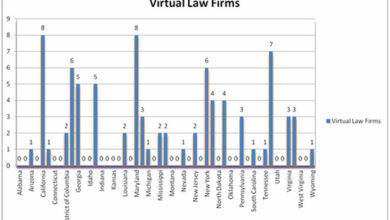Insights into the Life of a Corporate Lawyer
Being a corporate lawyer is a career path that many law school graduates aspire to. With its prestige, high earning potential, and challenging nature, it’s no wonder that this field attracts the attention of aspiring legal professionals. However, the life of a corporate lawyer is not as glamorous as it may seem on the surface. In this article, we will delve into the realities of being a corporate lawyer, providing valuable insights into their day-to-day responsibilities, the challenges they face, and the skills required to succeed in this competitive field.
The Role of a Corporate Lawyer
A corporate lawyer, also known as a business lawyer, is an attorney who specializes in providing legal advice and representation to corporations and businesses. Their primary focus is on the legal aspects of corporate transactions, such as mergers and acquisitions, corporate finance, intellectual property rights, contracts, and compliance with regulations. They play a vital role in ensuring that companies operate within the boundaries of the law and make informed decisions that protect their interests.
Corporate lawyers work closely with business executives, advising them on legal matters and helping them navigate complex legal issues. They draft and review contracts, negotiate deals, conduct due diligence, and provide guidance on corporate governance. Their expertise extends to various areas of law, including employment law, tax law, securities law, and intellectual property law, allowing them to offer comprehensive legal solutions to their clients.
A Day in the Life of a Corporate Lawyer
The life of a corporate lawyer is demanding and fast-paced. Their workdays are filled with meetings, negotiations, research, and drafting legal documents. Let’s take a closer look at what a typical day in the life of a corporate lawyer might entail:
Morning
The day usually starts early for a corporate lawyer. They review their schedule, respond to urgent emails, and prepare for the day ahead. The morning hours are often dedicated to meetings with clients or colleagues. They might meet with corporate executives to discuss ongoing legal matters, provide updates on the progress of cases, or offer guidance on upcoming business transactions.
Additionally, corporate lawyers might attend internal meetings with colleagues from different departments, such as finance, human resources, or marketing. These meetings allow them to stay informed about the company’s activities and provide legal advice on various issues that arise within the organization.
Afternoon
In the afternoon, corporate lawyers typically focus on research and drafting legal documents. They spend a significant amount of time conducting legal research to stay updated on relevant laws, regulations, and precedents that may impact their clients. This research helps them build strong arguments, anticipate potential legal issues, and provide accurate advice to their clients.
Furthermore, corporate lawyers often spend their afternoons drafting and reviewing contracts, agreements, and other legal documents. They ensure that these documents meet legal requirements, protect their clients’ interests, and accurately reflect the terms of the agreements. Attention to detail and a deep understanding of contract law are crucial in this aspect of their work.
Evening
The work of a corporate lawyer often spills over into the evening hours. They may have conference calls or meetings with clients in different time zones, requiring them to be flexible with their schedule. During these evening hours, they also catch up on pending tasks, respond to emails, and prepare for the next day’s meetings and deadlines.
While the workload can be demanding, corporate lawyers also prioritize work-life balance. They understand the importance of taking breaks, maintaining their well-being, and spending time with family and friends to avoid burnout.
Challenges Faced by Corporate Lawyers
Working as a corporate lawyer comes with its fair share of challenges. Let’s explore some of the common challenges faced by professionals in this field:
High-pressure environment
Corporate lawyers often work under high-pressure environments where tight deadlines and complex legal issues are the norm. They must be able to handle stress effectively and deliver high-quality work under tight time constraints.
Long working hours
The nature of corporate law often requires lawyers to work long hours, including evenings and weekends. They must be prepared to dedicate significant time and effort to meet client expectations and complete their responsibilities.
Continuous learning
The legal field is constantly evolving, with new laws, regulations, and precedents emerging regularly. Corporate lawyers must stay updated on these changes to provide accurate and relevant legal advice to their clients. They must engage in continuous learning and professional development to stay ahead in their field.
Balancing multiple responsibilities
Corporate lawyers often handle multiple cases and clients simultaneously. They must be skilled at managing their time, prioritizing tasks, and ensuring that all client needs are met. Balancing various responsibilities can be challenging, requiring strong organizational and multitasking skills.
Client expectations
Clients rely on corporate lawyers to provide sound legal advice and protect their interests. Meeting and managing client expectations can be demanding, as lawyers must communicate effectively, understand their clients’ goals, and provide practical solutions to complex legal problems.
The Skills Required to Succeed as a Corporate Lawyer
Being a successful corporate lawyer requires a combination of legal expertise, business acumen, and interpersonal skills. Let’s explore some of the key skills that are essential for thriving in this field:
Legal knowledge
Corporate lawyers must have a deep understanding of corporate law, including contract law, securities law, tax law, and intellectual property law. They must stay updated on legal developments and possess the ability to apply legal principles to real-world situations.
Analytical skills
Effective problem-solving and analytical skills are crucial for corporate lawyers. They must be able to analyze complex legal issues, identify potential risks, and develop innovative solutions that protect their clients’ interests.
Communication skills
Strong communication skills are essential for corporate lawyers. They must be able to articulate complex legal concepts in a clear and concise manner, both orally and in writing. Effective communication helps them build rapport with clients, negotiate deals, and present legal arguments convincingly.
Negotiation skills
Corporate lawyers often engage in negotiations on behalf of their clients. They must possess strong negotiation skills, including the ability to understand the interests of all parties involved, identify mutually beneficial solutions, and advocate for their clients’ positions effectively.
Business acumen
Corporate lawyers must have a solid understanding of business principles and the industries in which their clients operate. This knowledge allows them to provide practical legal advice that aligns with their clients’ business objectives.
Case Studies: Real-world Examples
Examining real-world case studies can provide valuable insights into the work of corporate lawyers. Let’s explore two case studies that highlight the role of corporate lawyers in complex legal matters:
Case Study 1: Mergers and Acquisitions
ABC Corporation, a multinational company, decides to acquire XYZ Corporation, a competitor in the same industry. The corporate lawyers representing ABC Corporation play a crucial role in this transaction. They conduct due diligence to identify any potential legal risks associated with the acquisition, negotiate the terms of the deal, and draft the necessary legal documents, such as the acquisition agreement and shareholder agreements.
Throughout the process, the corporate lawyers ensure compliance with regulatory requirements, protect their client’s interests, and facilitate a smooth transition. They work closely with other professionals, such as investment bankers and accountants, to ensure that all aspects of the transaction are handled efficiently.
Case Study 2: Intellectual Property Rights
Company A, an innovative technology firm, develops a groundbreaking software product. The corporate lawyers representing Company A play a vital role in protecting their client’s intellectual property rights. They help the company obtain patents for their invention, draft licensing agreements to commercialize the product, and enforce their rights against potential infringers.
In this case, the corporate lawyers work closely with intellectual property specialists and technology experts to navigate the complex legal landscape surrounding intellectual property. Their expertise in this area ensures that Company A’s innovative product is adequately protected and monetized.
FAQs: Frequently Asked Questions
1. What qualifications are required to become a corporate lawyer?
To become a corporate lawyer, you typically need to obtain a law degree and pass the bar exam in the jurisdiction where you intend to practice. Additionally, gaining practical experience through internships or clerkships can be beneficial for entering this competitive field.
2. How is the work-life balance for corporate lawyers?
Work-life balance can be challenging for corporate lawyers due to the demanding nature of their work. However, many firms prioritize work-life balance and offer flexible working arrangements to their employees. It ultimately depends on the individual’s ability to manage their time effectively and set boundaries.
3. What is the earning potential for corporate lawyers?
Corporate lawyers have the potential to earn high salaries, especially at prestigious law firms or in corporate legal departments of large companies. The earning potential can vary based on factors such as experience, location, and the size of the firm or organization.
4. Is being a corporate lawyer a stressful job?
Yes, being a corporate lawyer can be stressful due to the high-pressure environment, long working hours, and the responsibility of handling complex legal matters.However, individuals with effective stress management skills and a passion for the work can thrive in this challenging field.
5. What are the career prospects for corporate lawyers?
Career prospects for corporate lawyers are generally favorable, especially for those with strong legal skills and business acumen. Many corporate lawyers eventually become partners at law firms or hold high-level positions in corporate legal departments. There are also opportunities to specialize in specific areas of corporate law, such as mergers and acquisitions or intellectual property.
Conclusion
Being a corporate lawyer is a demanding yet rewarding career path. It requires a combination of legal expertise, business acumen, and interpersonal skills to excel in this field. Corporate lawyers play a crucial role in ensuring that companies operate within the boundaries of the law and make informed decisions that protect their interests. They navigate complex legal issues, provide valuable advice to clients, and facilitate transactions that drive business growth. By understanding the insights provided in this article, aspiring corporate lawyers can gain a realistic understanding of the profession and prepare themselves for the challenges and opportunities that lie ahead.
FAQs (Continued)
6. What is the difference between a corporate lawyer and a litigation lawyer?
A corporate lawyer primarily deals with legal matters related to businesses and corporations, such as mergers and acquisitions, contracts, and compliance. On the other hand, a litigation lawyer focuses on resolving legal disputes through the court system. While there may be some overlap in their roles, the areas of focus and the nature of their work differ significantly.
7. Do corporate lawyers only work in law firms?
No, corporate lawyers can work in a variety of settings, including law firms, corporate legal departments, government agencies, and non-profit organizations. The choice of work environment depends on individual preferences and career goals.
8. Can corporate lawyers specialize in specific industries?
Yes, corporate lawyers can specialize in specific industries based on their expertise and interests. For example, they may focus on healthcare law, technology law, or entertainment law. Specializing in a specific industry allows corporate lawyers to develop in-depth knowledge and provide tailored legal advice to clients in that sector.
9. Are there any ethical considerations for corporate lawyers?
Yes, corporate lawyers are bound by ethical rules and responsibilities. They must maintain confidentiality, avoid conflicts of interest, and act in the best interests of their clients. Upholding ethical standards is essential for building trust and credibility in the legal profession.
10. Can corporate lawyers work internationally?
Yes, many corporate lawyers have the opportunity to work internationally, especially in global law firms or multinational corporations. International work may involve dealing with cross-border transactions, navigating different legal systems, and understanding the nuances of international business laws.
Summary
Being a corporate lawyer is a challenging yet fulfilling career choice. These legal professionals play a vital role in advising businesses and corporations on legal matters, ensuring compliance with regulations, and facilitating complex transactions. The life of a corporate lawyer is characterized by a fast-paced work environment, long hours, and high-pressure situations. However, with the right skills, such as legal knowledge, analytical abilities, communication skills, negotiation skills, and business acumen, individuals can thrive in this field. By understanding the insights provided in this article, aspiring corporate lawyers can gain a realistic view of the profession and equip themselves for success.









